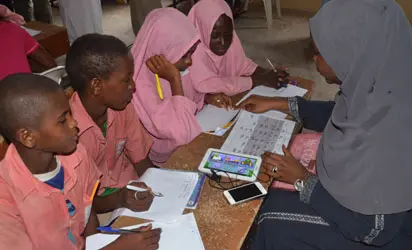It has become imperative for me to chip in a word on the ongoing Academic Staff Union of Universities (ASUU) strike which has kept many Nigerian youths at home since February 2022. The strike has become intractable and it looks like all bets are off – again. President Buhari has given a few deadlines and ordered several entities to do the needful without achieving results. If the president himself is not achieving results, one wonders who can. It is a sad situation as Nigerian youths who are undergraduates in public universities are again being alienated from their nation, brewing for another crisis in the guise of the October 2020 Endsars which almost tipped Nigeria into an unknown spiral.
ASUU said the government is owing its members some promises running into the trillions of Naira. There is also the big issue of how the salaries of university lecturers are paid. On the former issue, the government says it is broke – and it really is, largely to its own profligacy and planlessness as politicians went for our little commonwealth like monkeys rushing for bananas. The economy stands on a precipice today – a cliffhanger like never before. We service our debts with multiples of what we earn, meaning that we have to borrow, to service those debts. And things could get worse when debt principals kick in. the ministry of finance complains often about our dismal revenue capabilities, but is permanently politically incapacitated or captured. The organised private sector as represented by big guys in NACCIMA, LCCI, MAN and so on, have taken an antagonistic position to any attempt by government to raise revenue – be it excise duties, VAT, sugar tax, whatever. They oppose vehemently. And the ordinary elite (among whom may be university lecturers) equally vehemently resist other revenue heads like property taxes, luxury taxes etc. We are in a fix aren’t we. What is more? The great NNPC, our universal cash cow has now become a limited liability company, meaning we would all as a people have to wait for that company to determine its financial performance at the end of each year before we collect anything that may be due by way of taxes and dividends. I disagree with the tax guru, Taiwo Oyedele, that the government may continue to expect monthly remittances. No limited liability company should spend freely every month without a care for how their year may eventually turn out. Every Nigerian should protect that company from being run still like some sick organization. If that is what government expects, we should try and frustrate them.
In short, Nigeria is really broke. The government cannot keep up with most of its obligations. The government has been borrowing to pay salaries no doubt. Apart from the N41 trillion global debt, another N20 trillion sits in the Central Bank of Nigeria. It’s just incredible. ASUU should take notice.
On the matter of IPPIS and UTAS, I sway on the side of the government. If the government has finally found some system that helps it keep down the occurrences of ghost workers and wastages, we have to support such an idea against any entity that seeks to water it down. University lecturers are Nigerians too. They are not above the law. Like Professor Eyitope Ogunmodede (VC Obafemi Awolowo University) advised, the ASUU had better start figuring out how it could work with government to tweak the same IPPIS to take into consideration some peculiarities of the university system. The thing is that university lecturers sometimes teach in more than one institution. But many lecturers abuse it. Professor Rasheed, the Executive Secretary of the Nigeria Universities Commission (NUC), once stated that he knew a friend who lectured in 12 universities up north. How does this work? The lecturer simply shows up once or twice in a semester, thus subjecting poor students to trauma because he teaches little but cashes out big time. Even with IPPIS, lecturers still have opportunities to teach ‘full time’ in one federal university and combine that with appointments in state and private universities. It looks like the same corruption that has seized and contorted mainstream public sector has since berthed in academia and wreaked much havoc.
How can a lecturer who indulges in such practices be serious about research and innovation? The position of a university lecturer is one of those that should be protected by ethics and integrity. These acts are however largely responses to years of neglect. Our lecturers have suffered for decades. And then, like everyone else, they got smart. But it is a short walk between combining several places of employment, delivering too little to poor students, and finding oneself asking for sexual favours or money from the boys. It is slippery slope. Now, I’m not alleging that this is what is happening. I have friends in academia and would one day want to add my bit in that area. But these are the possibilities. These are what the government has alleged.
From my perch, I know a few of these labour leaders who are billionaires in their own rights. I don’t know how they do it. In Nigeria, labour leadership positions have become a career, and those who lead the very ‘juicy’ ones have no tenure. They become like monarchs. How such stupendously rich people believe they can keep poor students in this state makes me wonder.
We Have A Big Problem
The entire imbroglio made me wonder whether we know the true essence of education. I think many Nigerians still see education as:
Bragging Rights
Certificate to seek employment
Human rights that the state should pay for A route to speaking fantastic English language and getting prestige A route to a nice position in government, with access to slush funds and corruption.
But in my view, and from what I’ve seen around the world, education should be for a people to be able to develop their country, help in attaining collective prestige driven by innovation and productivity, and helping our fellow men to achieve better living standards, no matter where they may be on the surface of the earth. Education should be about value-addition. In Nigeria, we aren’t adding value. We all gather and point fingers at politicians and governments, but when academics who should be able to think better and deeper than anyone else in society have given up themselves, hope seems lost.
The ASUU problem may not be solvable given the facts on ground. No one is even ready to tell the truth about what is going on. Is ASUU being reactionary? Are they just acting up in retaliation for the decades of recklessness of government? Can they spare some time for self-introspection? Can the students too? Can the alumni of our universities?
Listen to what the OAU VC had to say about the fees paid today by students:
The students still pay N90, with N2,500 maintenance fees, per session for accommodation even in situations where the session extends beyond 12 months. The N90 is the same amount I paid as a student in the same university in the 1970s. The cost of the receipt issued for the payment is probably more than the amount paid and it would have been more “economical” for the university if offered free! The charging of “fees” is not supported by the Federal Government but in OAU, undergraduate student pay ‘’Departmental charges” of N5,000 per session for Arts, N10,000 for Sciences, Social Sciences, Technology and Law, and N15,000 for Medicine and other courses in the Health Sciences. These charges were fixed over 20 years ago and the uproar that followed has ensured that it remained the same.
If anyone increases these fees, new riots will break out. Even ASUU is not in support. I have heard ASUU argue against ANY increases in fees. So, where does Nigeria find these trillions that they need for their arrears and for newly demanded salary increases? Why must university education continue to be the olden days indicator of elitism? Yes, we haven’t been good to our artisans. But many people who don’t work in regular white-collar stuff have been cashing out for years now. Times have changed. Why are students, alumni, ASUU, not changing? Or is it distrust that university administration will misappropriate and embezzle funds? Whatever it is, I think we have all failed. And this impasse in the university system is a great indicator of why our country is here. We forgot – or we never knew – what education is supposed to achieve. We failed to see the role of dynamism and pragmatism. We held on to our guns and projected only selfish propositions that took care of our corner, while neglecting the collective.
I started to see why we have failed to develop; why we still expect the Chinese, the Europeans and others to come and help us. Perhaps it is a defect with the way we think. Or perhaps some of these entities tried in the past and have now determined that ‘no more. Let us join them and ruin everything’.
It gets worse. From the OAU VC’s writeup, even the broke ass federal government (including the National Assembly) is still deluded. Hear:
The federal government also insist that the annual appropriation budget had taken care of all necessary expenditure and that 25 per cent of any income generated must even be remitted to the Federal government. In 2020, the National Assembly passed a resolution that Universities should refund Acceptance fees (N20,000 per newly admitted student for OAU)… Also, in October 2019, the University of Maiduguri introduced a modest increment in their charges and were forced to revert to the old charges by both the Senate and the House of Representatives. In ordering the University of Maiduguri to suspend the plan to raise the fees imposed, the House of Representatives concluded “Irrespective of the justification that may have informed the decision, either to address operational and managerial realities of the school, such decision is ill-timed, given the desire by the federal government, the Borno State government and well-meaning Nigerians to tackle the educational needs of Borno State and its environs.” … The University of Benin announced a similar increase in some charges in September 2021 which also had to be reversed.
The days of community contribution for the mythical Okonkwo’s son to go abroad to study Classics, and he being welcomed by hordes of Atilogwu dancers, horse riders and the Nnukwu mmanwu of his village is long over. Population has ballooned. Globalization is the new norm. Certificates that earn money are now being earned via Youtube. Education is no longer something to be held in awe for by your extended family members, or a right for you to be lazy and earn money for doing nothing. The days of lecturers constituting themselves into gods to be worshipped for their longevity and expiring knowledge has been eclipsed by this work-from-home phenomenon, whereby companies no longer even demand for certificates but for a demonstration of what you can achieve in real time. The world has again left us behind while we bickered with ourselves.
Just in case I am still unclear, education is supposed to be for:
Creating a better, improving society, and the world at large, by creating policies, technologies, ideas that eases the pains of living for the majority.
Fighting for justice for the vulnerable, underprivileged, unfortunate, so that they may live better and contribute to society
To help people understand and navigate the world better and more competitively, and to teach others this art and science.
To enable us to be less selfish and get our priorities in life right, to be able to compete and cooperate better with nations. In general to broaden our minds, worldview, possibilities and horizons.
If there is one thing education should have achieved in Nigeria, it is no 4 above. The fact that we still have people stealing in public service, robbing and defrauding in private sector, and most of us claiming to me members of our tribes before being Nigerians, and all the religious overdrive in our society, only shows that education – especially university education – has not achieved its aim in Nigeria, 73 years after University College, Ibadan. The fact that we are still at this point especially with our public tertiary education, where the unions are dragging in one direction, with some billionaire union leaders making a effervescent corruption-laden career out of unionism, the equally corrupt government promises and fails, graduates are left to sort themselves anyhow, and students are left in limbo for months and years, shows that collectively, as a people, we have a mental malfunction and we don’t get what all the education should be about. That we have left 15 million children on the streets and none of us worries about this but we procreate millions more to join that army of zombies yearly, means that we are booking a place for ourselves where our nation will be ostracized from the comity of nations for our unpardonable, unforgiveable and idiotic mismanagement of our space, through the gross misunderstanding of what education should have achieved for us. I put it down to physical and mental laziness and the eagerness to self-gratify rather than considering the big picture. Perhaps it is a problem with our DNA or the water we drink.
Can anyone see Nigeria in the future? Or have we become dinosaurs in real time?





